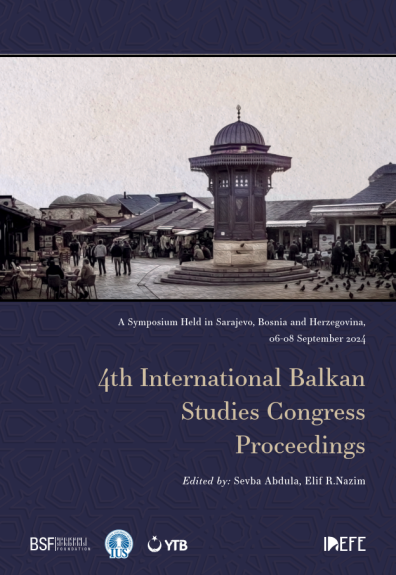Proceedings
Postkomünist Dönemde Balkanlar’da Azınlık Sorunlarının Dönüşümü: Bulgaristan Örneği
Authors
-
Mustafa IşıkDr., Independent Researcher
Synopsis
The Balkans have historically been a geography where ethnic, religi-ous, and cultural diversity coexisted. The efforts of the Ottoman Empire to main-tain this diversity within a structured order changed with the nation-state forma-tion process, making minority issues more pronounced. In the Balkans, where the concept of borders has always been in conflict, minority rights have come to the forefront of regional countries’ agendas with the determination of borders through treaties. In the post-1945 period, the countries of Eastern Europe and the Balkans under the influence of the USSR suppressed minority issues due to security-focused state policies. The Soviet ideology aimed to create a populati-on layer ideologically compatible by imposing its own citizenship model on this region, but this process led to harsh interventions such as pressure and forced migrations, especially on Turkish and Muslim communities. Concrete examples of these policies include the forced migrations from Bulgaria to Turkey (1951, 1968 Migration Agreement, and 1989 Forced Migration). The end of the Cold War and the collapse of communist regimes in 1991 have re-introduced the minority issues of the Balkans to the international arena during the transition to democ-racy. The challenges of managing ethnic diversity and social structure have be-come a significant challenge for the region during this period, shaping the 1990s with ethnic conflicts and crises. The lack of a supreme authority in the region led to ethnic conflicts and the emergence of intractable problems, revealing the challenges of managing ethnic and religious diversity and its impacts on inter-national relations. During this period, the EU and NATO membership processes have been considered as a mechanism contributing to the resolution of minority issues in both Bulgaria and other Balkan countries. This study assumes that the political transformation in the Balkans is concurrent with the diversification of minority issues, addressing the role of minorities in solving internal and exter-nal political problems. This transformation process in the Balkans includes chal-lenges at both regional and international levels concerning minority rights, the prevention of ethnic conflicts, and the peaceful management of diversity. Thus, the transformation of minority issues in the region’s history holds critical im-portance for ensuring minority rights and ethnic peace in today’s world politics.
Copyright
Copyright (c) 2025 Idefe Publications
License

This work is licensed under a Creative Commons Attribution-NonCommercial 4.0 International License.
Downloads
Publication Information
-
Publication TypeChapter
-
Volume
-
Pages253-268
-
PublishedJune 7, 2025
-
Series
-
Series PositionProceedings 04
Abdula, S. (Ed.). (2025). Postkomünist Dönemde Balkanlar’da Azınlık Sorunlarının Dönüşümü: Bulgaristan Örneği. In 4th International Balkan Studies Congress Proceedings: Vol. Proceedings 04 (pp. 253-268). Idefe Publications. https://doi.org/10.5331/
